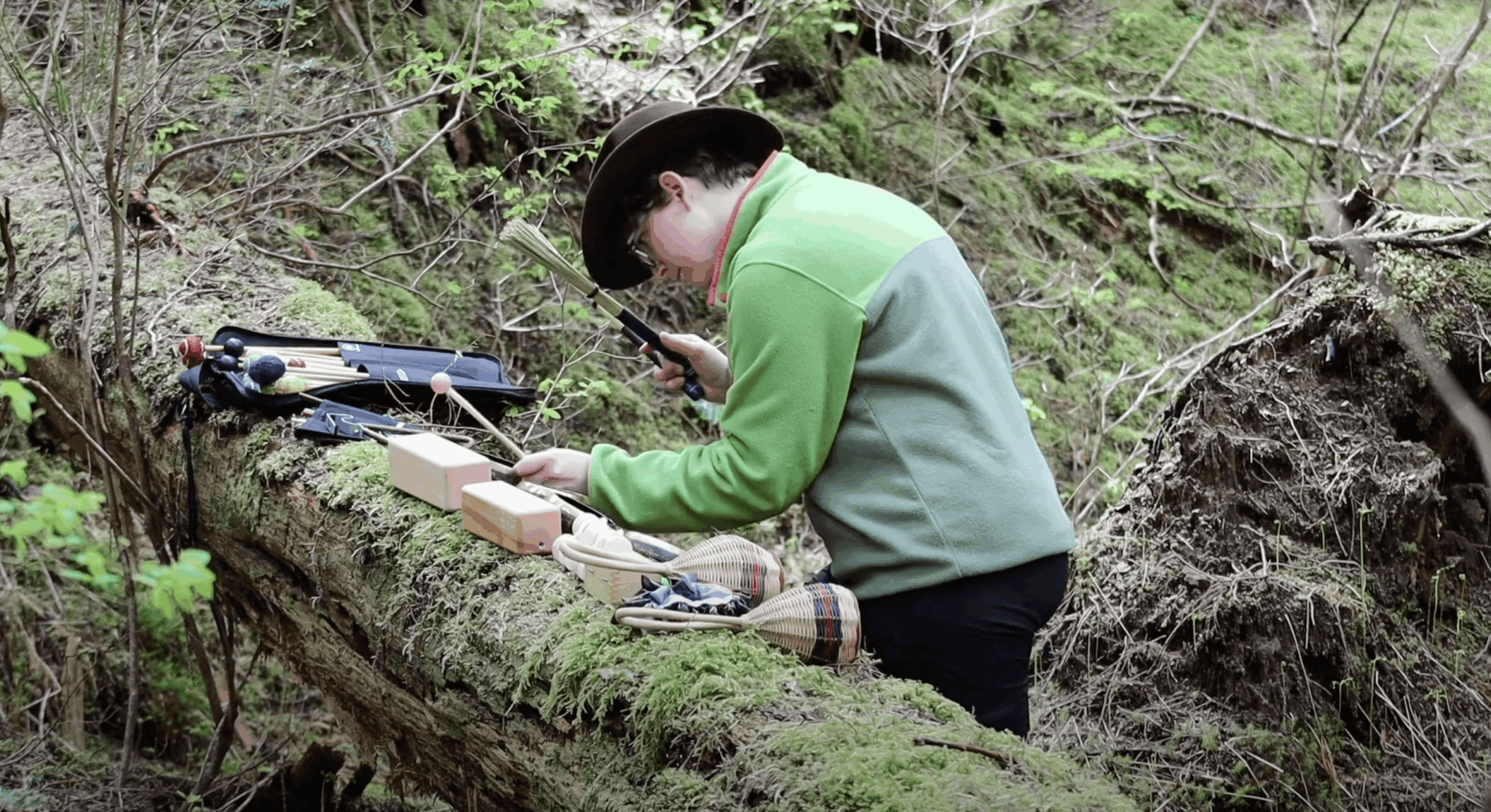We’re excited to introduce you to the always interesting and insightful Alexis Lamb. We hope you’ll enjoy our conversation with Alexis below.
Alexis, thanks for taking the time to share your stories with us today Can you talk to us about a project that’s meant a lot to you?
Over the years, it has become increasingly important to me to dedicate my time to projects that are both fulfilling and meaningful, rather than just those that provide work (and not always paid work, either, as artists often encounter the “experience” payment trope). I don’t know the original source, but I have seen a visual representation of a three-circle Venn diagram on many occasions, showing that people typically do their work for three reasons: 1. money, 2. people, and 3. opportunities. The work is often most fulfilling when it appears in the middle, connecting these three circles, but it can still be quite enjoyable when two of the three align with the work. One of the most meaningful projects I have developed over the past three years currently falls into only two of the three categories, but it has the potential to transition to the middle in due time.
Refugia Festival was created as a result of my dissertation work at the University of Michigan, where I was awarded my Doctor of Musical Arts (DMA) in Composition in May 2025. My dissertation, Resonant Gratitude, considers humans’ musical relationship to our natural soundscapes, specifically seeking how our music can coexist with, or be in service to, our natural surroundings. My DMA field research in 2022 took me to remote locations in North and South America and included engaging in conversations with local and Indigenous community members, leading workshops on making music with foraged sounds, improvising in nature with percussion, and documenting my work through audio and video. After a workshop I presented during my field research in Alaska in May 2022, I had a biologist who participated tell me that it was the first time she had paid attention to the different sounds of all the shells found on that shoreline. To me, that proved that even an expert in the field could become more aware of their sonic surroundings through the power of music, and the idea of Refugia Festival was born.
Refugia Festival is an innovative event series that combines music performances with educational workshops and community service to advocate for environmental conservation through sound. Refugia Festival’s mission aims to address two problems related to conservation and the performing arts. First, human-caused climate change affects everyone globally, but sound pollution is rarely presented as a critical concern, even though awareness could play a role in ecosystem preservation. Additionally, numerous works in the performing arts are dedicated to environmental justice but are often presented in indoor venues, such as concert halls, that disconnect the listener from the environment and lessen the art’s impact. To solve these issues, Refugia Festival produces outdoor, ecosystem-specific events that emphasize the relationships between the arts and our living Earth to bring awareness to the beauty of natural soundscapes and offer solutions to mitigate sound pollution.
Refugia Festival’s innovation lies in its event programming: each event takes place in the ecosystem that the community wants to preserve, and all programming is either thematically related to or directly engaging with the surrounding ecosystem as a means of bridging the gap between environmental conservation and the arts. Refugia Festival works with regional artists, educators, vendors, and non-profit organizations to curate immersive, place-based programming that features the artistic and scientific excellence present in the local community and provides opportunities for attendees to continue their conservation actions beyond the festival. By hosting performances and workshops outdoors, in the very ecosystems that need protection, the festival fosters a direct connection between attendees and nature. This innovative approach not only raises awareness but also empowers individuals to adopt sustainable behaviors.
Refugia Festival is built on the idea that if people become aware of the benefits of a healthy soundscape, which often includes breathing cleaner air and hearing a more diverse array of birds, insects, and other animals, they may choose to adjust their daily habits to nurture the soundscape and, in turn, themselves. One of the key social benefits of Refugia Festival is its ability to engage multiple audiences—music lovers, conservation enthusiasts, and individuals seeking tangible ways to contribute to environmental preservation. Traditional conservation efforts often focus on large-scale policies or abstract principles, but Refugia Festival localizes these concerns by immersing attendees in an ecosystem they can help sustain. By integrating performances and workshops with site-specific experiences, attendees gain firsthand exposure to the beauty of natural soundscapes, strengthening their personal connection to the environment.
Refugia Festival presented our inaugural two-day event at Nichols Arboretum in Ann Arbor, Michigan, on April 20-21, 2024. This successful proof of concept (PoC) included eight music performances, five educational workshops, two interactive sound installations, and one on-site service activity. For the approximately 216 beneficiaries who attended the PoC, Refugia Festival offered a space of reflection, celebration, and commitment to protecting the natural soundscapes within that ecosystem. Participants reported heightened awareness of their sonic surroundings, increased appreciation for nature, and a strengthened commitment to sustainable living. One attendee noted that the festival provided “…a welcoming space to explore, experience, and be with nature,” highlighting its role in fostering mindfulness and presence. Another shared their newfound commitment to “…being much more active with sustainability and living an environmentally-friendly lifestyle,” demonstrating the festival’s power to inspire real-world action. These findings underscore Refugia Festival’s ability to generate meaningful change, both at an individual and community level. By curating experiences that are both artistic and educational, the festival creates an environment where attendees not only appreciate nature but also feel empowered to protect it.
The 2025 season includes a one-day event prototype that will also take place in Nichols Arboretum in Ann Arbor on September 28, which will be our minimum viable product (MVP) and demonstrate flexibility with event iterations as we refine the business plan and expand in 2026 and beyond. The core festival schedule features four performances, three educational workshops, and at least one service activity. This year’s event also places a greater emphasis on programming regional artists and educators to deepen the place-based connection. The primary development in this year’s festival that provides opportunities for wide-ranging community engagement is the curation of a multimedia art and performance gallery, Field Resonances, that will be available to view throughout the event. Field Resonances expands Refugia Festival’s offerings and allows local community members to share their nature-inspired work in this space for attendees to experience between stage sets and throughout their day. We will also have scheduled sets for Field Resonances presentations that are temporal, such as with dance, theatre, and music. The second significant development initiates a year-long “Soundscape Meters” installation and mini-performance project in Nichols Arboretum and the broader University of Michigan area, enhancing awareness of the region’s acoustic ecology and connecting this work to the ongoing social and environmental impact of Refugia Festival. The Soundscape Meter signs will show a real-time decibel meter reading and a QR code that links to a website featuring the meter’s data, the surrounding ecosystem’s soundscape, and conservation solutions. Additionally, the site will offer details from my dissertation research, including a list of interactive activities that will engage sonic attention in natural spaces. Each sign unveiling will include a short performance or workshop that connects back to Refugia Festival’s ongoing work in the community. Our programming is diverse in style, genre, and medium, yet rooted in community and fostering a relationship with the surrounding ecosystem.
In essence, Refugia Festival is more than just an event—it is a movement toward a more conscientious and engaged society. Through the arts, education, and local partnerships, Refugia Festival cultivates a culture of appreciation and responsibility for natural soundscapes, ultimately contributing to broader environmental preservation efforts. The festival’s ability to inspire action and build community around conservation not only makes it a transformative initiative with a lasting impact, but it is for these reasons that Refugia Festival is one of the most rewarding and meaningful projects in my life.
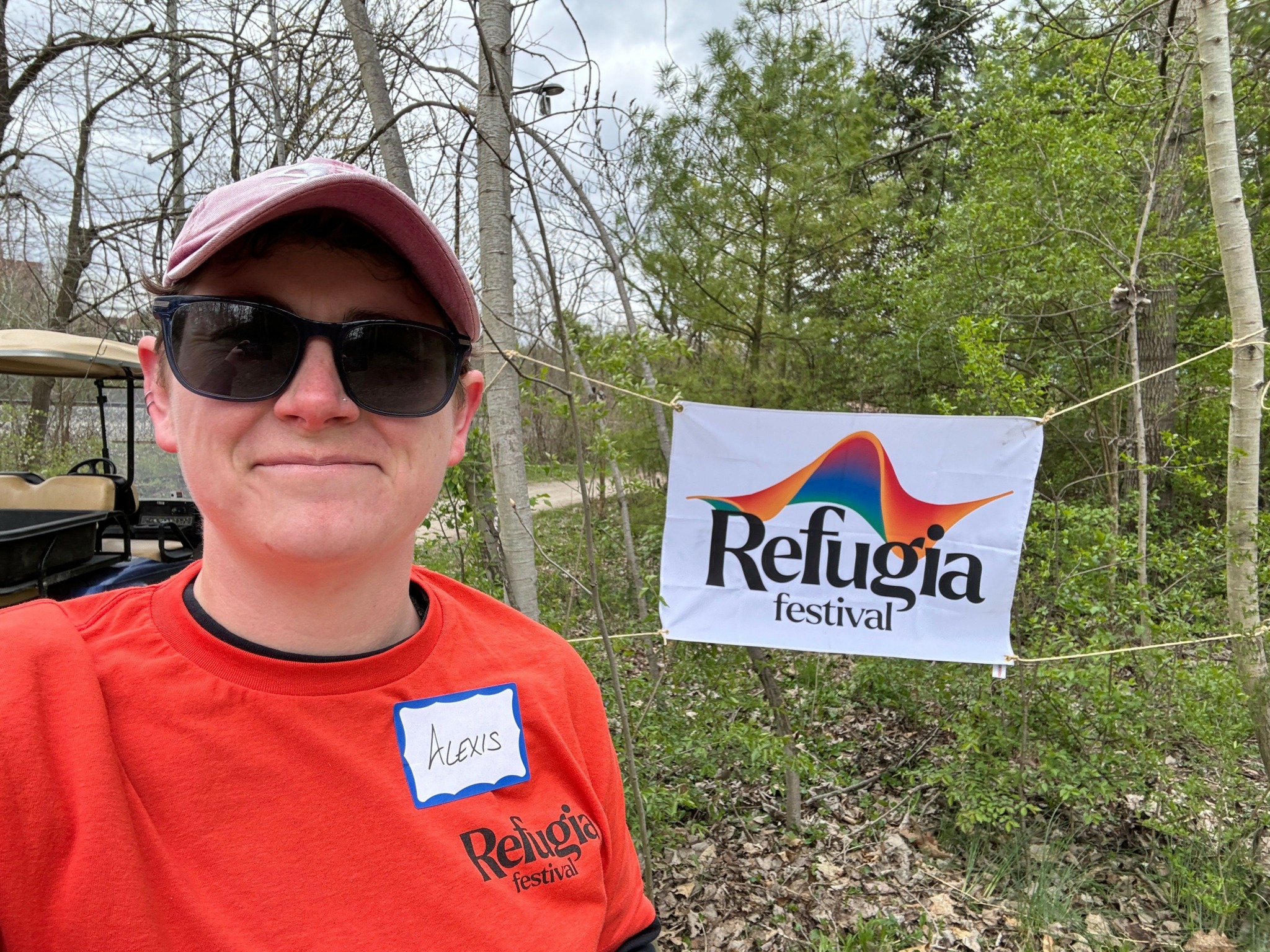
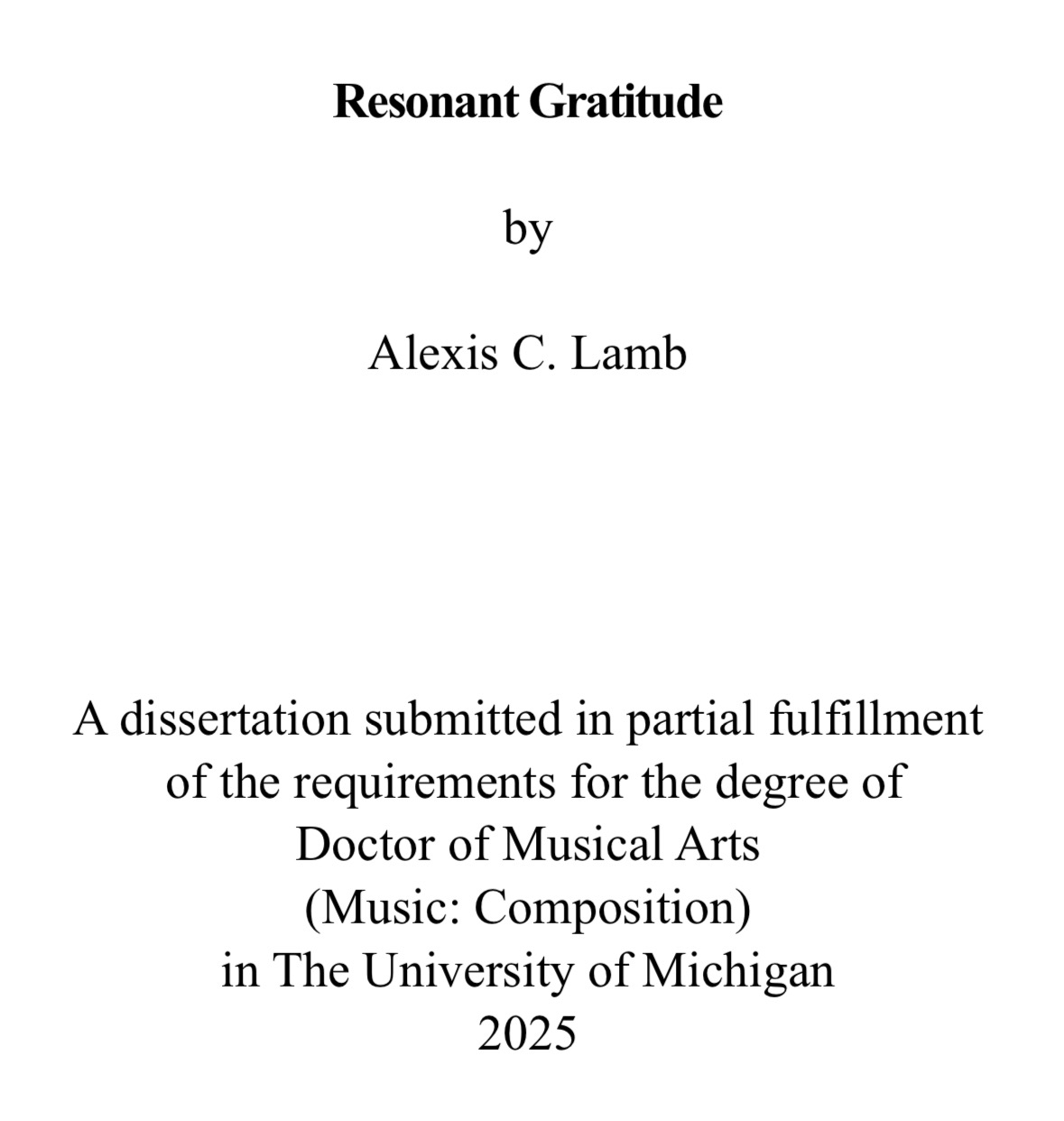
Any resources you can share with us that might be helpful to other creatives?
The biggest topic that I wish ALL artists had to experience, especially those who formally study their art at institutions of higher education, is the business/administrative side of what it takes to be an artist. In my eleven years spent in higher education, I received two bachelor’s degrees from a regional state school (including taking some classes from the local community college), one master’s degree from an Ivy League, and one doctorate degree from a Big 10 research university. Across all these programs, which included music studies in some capacity, any business content was left as extracurricular. In all of these cases, the schools taught me how to be the best artist I could be. But I had to go out of my way to learn about what to do with my art after I graduated.
I must give credit to my dear friend, Frances Pollock, for emphasizing the importance of financial literacy and business acumen for artists. If it weren’t for her, I would have taken a cognate class during my doctorate on the history of witchcraft. That’s not to say I am not still interested in the topic, but I instead decided to use my cognate time to create an independent study on what it takes to build a successful profession as a freelance composer. This included facilitating over one dozen interviews with artists I admire, building sample budgets and dossiers, and reading literature on the topic.
What I learned throughout this work is that the art is one of the smallest factors in building a career as an artist. It also requires exceptional skills in project management, communication, marketing, finance, time management, and entrepreneurial work. While these skills will develop over time and with experience, it’s never too early to start on that journey. I didn’t start on this until my late 20s, and I feel like I am playing catch-up. However, learning about what it takes has also helped me decide more clearly what I want to pursue in my professional career as an artist, based on who I am as a person. For example, I know that I am utterly terrified of writing emails to people when I need to advertise a new work and/or market new music to new audiences. I also work well with team accountability, and being a freelance composer is a fairly isolating job. But what I found most useful was learning about the concept of a portfolio career– a model that fits who I am and allows me to pick the parts from multiple positions that work best for me. When I reframe my profession based on the portfolio model, I get to say that part of my career is as a composer; and, part of it is as an arts administrator; and, part of it is as an educator; and, and… you get it.
I can’t change the past and what I didn’t learn or what was offered to me only as an extracurricular. However, I can continue learning about the necessary professional skills to build a career in the arts and encourage other artists to do the same.
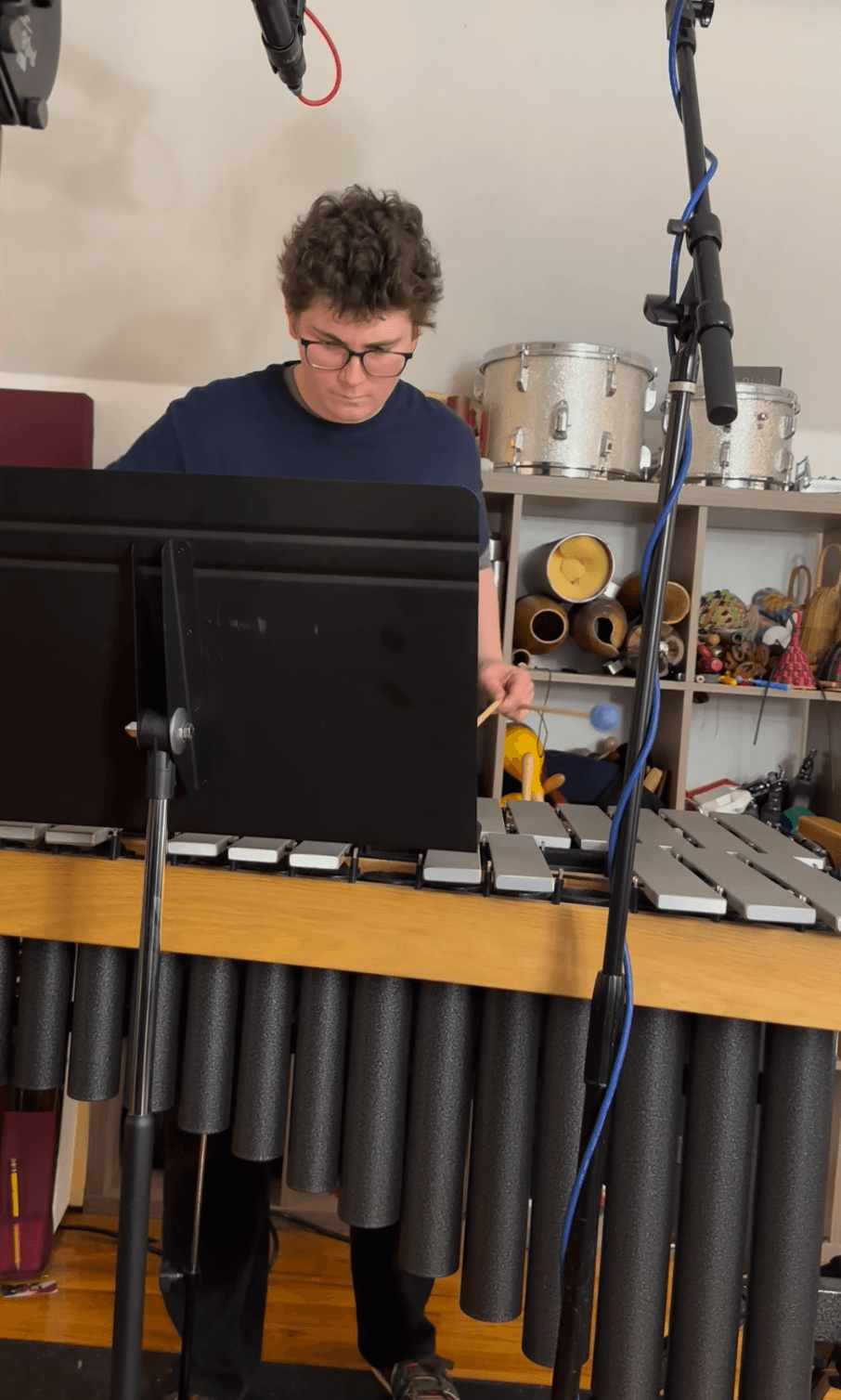
Do you think there is something that non-creatives might struggle to understand about your journey as a creative? Maybe you can shed some light?
I think many artists have mixed feelings about the word “inspiration” and what it implies about their work. Yes, I always feel better when I am inspired to work on a project. At the same time, I have also trained myself to approach creating art as work, which allows me to keep a fairly consistent flow of new ideas. However, artists also need to strike a balance in their production and consumption of other art, as well as their lived experiences, to keep their ideas fresh. To help mitigate this type of production burnout, I like to reframe “inspiration” as “play,” which adults never get to do enough!
Sometimes, I like to broaden the “play” aspect of my life to other projects outside of music, which I typically consider my primary form of art. I love working with my hands, so I find inspiration from taking a day to work on house projects, like finishing my basement and gardening. I also love to fish, so I have fun tying my own flies and getting creative with materials and patterns to try the next time I go fly fishing. It keeps the production/creation wheels greased, and this type of “play” gives me a chance to reset after being in heavier production phases of my music career.
But I always take advantage of inspiration when it strikes! A few months ago, I was enjoying a relaxing night at home and suddenly felt the urge to pick up my guitar and play. The first instrument I started playing was the guitar, but I haven’t really played it in years. Still, I picked it up and started improvising. The act of play is improvisation, which can also serve as inspiration. A few minutes later, I had a short motif that I wanted to remember, so I recorded it as a Voice Memo on my phone. I now have that “inspired” material in my hoarded collection of musical ideas that I can use as kindling for the next project, whenever it seems appropriate to use.
If we reframe “inspiration” as “play,” I think it puts far less pressure on finding whatever it is that one is seeking. Plus, it makes the journey a lot more fun!
Contact Info:
- Website: https://www.alexislamb.com/
- Instagram: @alexislamb26
- Facebook: https://www.facebook.com/alambbam/
- Linkedin: https://www.linkedin.com/in/alexis-lamb26
- Youtube: https://www.youtube.com/@alexisclamb
- Soundcloud: https://soundcloud.com/a-lamb-1
- Other: https://www.refugiafestival.com/
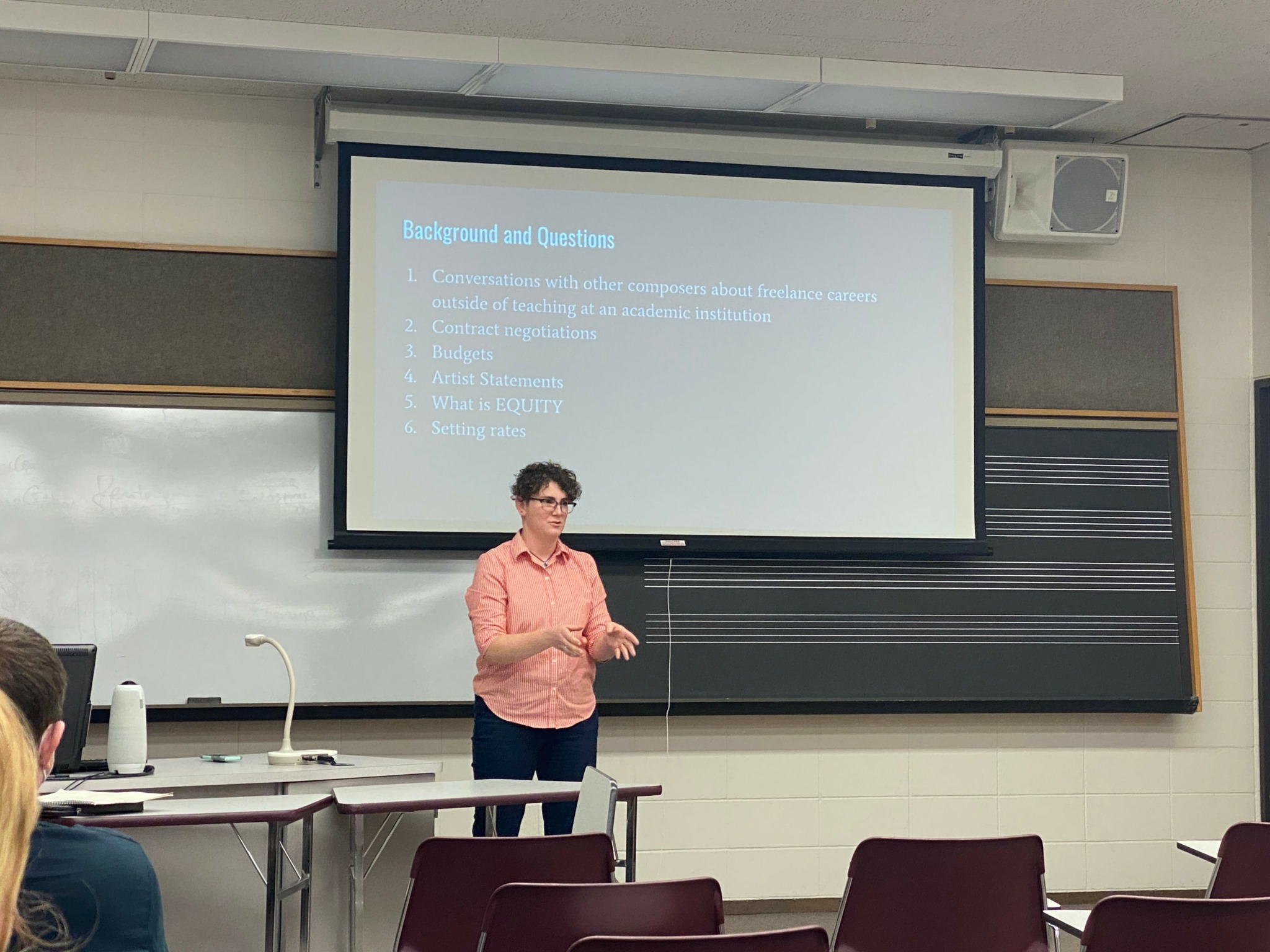
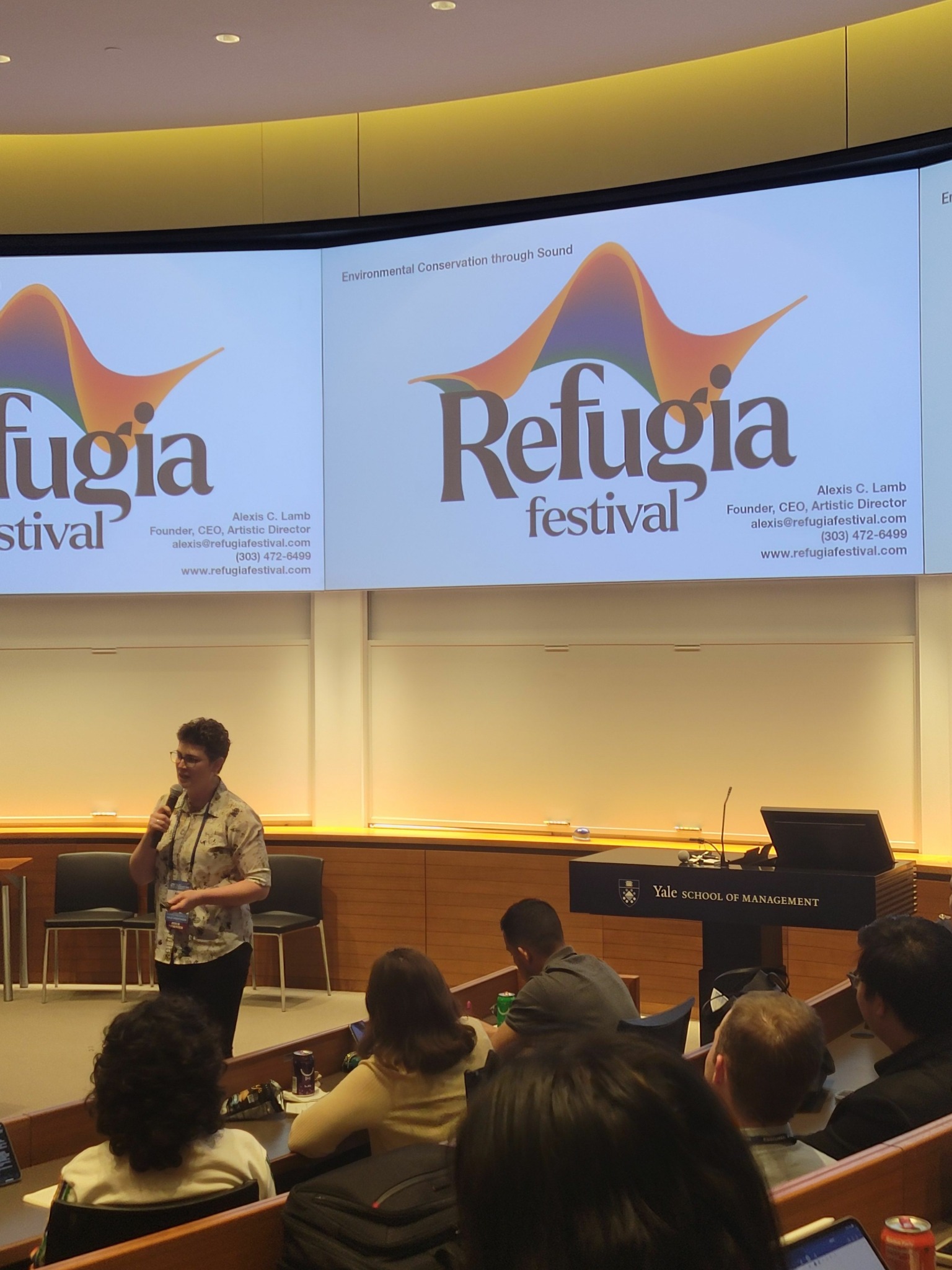
Image Credits
Alexis C. Lamb
Greg Beyer
Gavin Ryan
Gab Piazza


